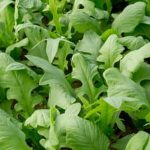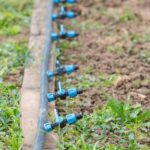Are you looking to enhance the health and productivity of your vegetable garden? Discover the most beneficial flowers for vegetable gardens that can support your plants in thriving. Companion planting is a gardening technique that involves growing different plants together to reap the benefits of their interactions. When it comes to beneficial flowers, they play a vital role in attracting pollinators, repelling pests, and improving soil health, ultimately creating a more bountiful harvest for your vegetable garden.
Beneficial flowers have been utilized in gardening for centuries, offering a natural and sustainable approach to support plant growth. From attracting pollinators such as bees and butterflies to repelling harmful pests like aphids and nematodes, these flowers can combat common challenges faced by vegetable gardens.
Additionally, many beneficial flowers also contribute to enhancing soil health and providing shade for delicate crops. By understanding the specific ways in which these flowers can benefit your vegetable garden, you can make informed decisions on which varieties to incorporate into your gardening practices.
Throughout this article, we will explore an array of beneficial flowers, each with its own unique set of advantages for vegetable gardens. From the towering sunflower that attracts beneficial insects and provides shade to delicate crops, to the vibrant marigold with its pest-repelling properties and soil-improving abilities, these flowers offer multifaceted benefits for your garden.
Whether you are a seasoned gardener or just starting out, incorporating these beneficial flowers into your vegetable garden can make a significant impact on the overall health and abundance of your crops.
The Role of Beneficial Flowers
Companion planting is the practice of growing different types of plants together in a way that can benefit each other. It is widely used in vegetable gardening to maximize the garden’s health and productivity. Incorporating beneficial flowers into vegetable gardens can play a crucial role in attracting pollinators, repelling pests, and improving soil health. These specific ways that flowers can benefit vegetable gardens are essential for a successful and thriving garden.
Attracting pollinators is vital for the success of many vegetable crops. Flowers such as sunflowers, lavender, and calendula are known for attracting bees, butterflies, and other pollinators to the garden. By planting these beneficial flowers alongside vegetables, gardeners can ensure proper pollination and higher yields.
In addition to attracting pollinators, some flowers have properties that help repel pests from vegetable gardens. For example, marigolds are well-known for their pest-repelling properties. They can deter harmful nematodes and other insects that may damage vegetable crops.
Nasturtiums are also beneficial in this regard as they attract aphids away from vegetable plants, serving as a trap crop for pests. Furthermore, certain flowers like lavender and calendula have been found to repel insects such as mosquitoes and moths, thus protecting the surrounding vegetable plants from potential harm. Lastly, these beneficial flowers also contribute to improving soil health by adding nutrients or preventing soil-borne diseases.
Overall, the inclusion of beneficial flowers in vegetable gardens plays a significant role in creating a balanced ecosystem within the garden while providing numerous benefits to the overall health and productivity of the vegetables being grown. By understanding how specific flowers can contribute to attracting pollinators, repelling pests, and improving soil health, gardeners can make informed decisions about which flowers to incorporate into their own gardens for maximum benefit.
Sunflower
One of the key benefits of planting sunflowers in vegetable gardens is their ability to attract beneficial insects. These include bees, butterflies, and other pollinators that are essential for the successful pollination of many vegetable plants. In addition, certain beneficial insects such as ladybugs and lacewings are natural predators of common garden pests, helping to keep pest populations in check without the need for harmful chemical pesticides.
Furthermore, sunflowers can act as natural shade providers for delicate crops. In hot climates or during the peak of summer, some vegetable plants can become stressed from excessive heat and sun exposure. By strategically planting sunflowers around these heat-sensitive crops, gardeners can help provide them with much-needed shade, allowing them to thrive even in challenging conditions.
When considering the most beneficial flowers for vegetable gardens, it is clear that sunflowers deserve a prominent place on any gardener’s list. With their ability to attract beneficial insects and provide shade for delicate crops, sunflowers offer invaluable support to the overall health and productivity of a vegetable garden.
- Sunflower seeds
- Sunflower petals
- Sunflower stalks
Marigold
Pest-Repelling Properties
Marigolds contain compounds that repel nematodes, which are microscopic worms that can wreak havoc on vegetable roots. By planting marigolds around the perimeter of a vegetable garden or interspersing them among crops, gardeners can naturally deter these damaging pests and protect their plants from potential harm.
Improving Soil Health
In addition to their pest-repelling properties, marigolds also contribute to improved soil health. These flowers release chemicals into the soil that help fend off harmful root-knot nematodes, as well as other damaging organisms. Furthermore, marigolds add organic matter to the soil as they decompose, helping to enhance its overall fertility and structure.
Gardeners can consider incorporating different varieties of marigolds in their vegetable gardens to enjoy these benefits while adding visual interest and color to their growing space. With their dual functionality in repelling pests and promoting soil health, marigolds are an excellent choice for enhancing the productivity and resilience of vegetable gardens.
Nasturtium
In addition to attracting aphids away from vegetables, nasturtiums can also serve as trap crops for pests. Trap cropping is a strategy used in organic gardening to lure pests away from main crops and onto certain plants that are more attractive to them.
Nasturtiums have been found to be effective trap crops for certain pests such as caterpillars and whiteflies. By planting nasturtiums strategically around vegetable beds, gardeners can help protect their precious crops without having to resort to chemical pesticides.
Furthermore, nasturtiums are not only beneficial for pest management but also bring additional advantages to the overall health of the vegetable garden. These flowers have been shown to enhance soil quality by acting as a natural mulch and adding organic matter when they decompose.
Their large leaves can offer shade and protection for more delicate plants while their bright blooms can attract pollinators such as bees and butterflies, which contribute to increased fruit and vegetable yields in the garden. With its multiple benefits, it’s clear why nasturtium is considered one of the most beneficial flowers for vegetable gardens.
Lavender
In addition to its pest-repelling and pollinator-attracting properties, lavender also has the potential to improve overall soil health in vegetable gardens. The roots of lavender plants have been found to help prevent soil erosion and compaction, while also contributing beneficial nutrients to the soil. As a result, incorporating lavender into a vegetable garden can lead to healthier and more fertile soil, providing an optimal environment for growing a wide variety of vegetables.
Furthermore, aside from its practical benefits for vegetable gardens, lavender adds aesthetic value with its striking appearance and fragrant blossoms. Its vibrant purple color can serve as a visually appealing addition to any garden space, while also providing a source of essential oils that can be used for various household uses. With all these advantages in mind, it’s evident that planting lavender is a valuable investment for those looking to enhance the health and productivity of their vegetable gardens.
| Benefit | Description |
|---|---|
| Pest Repellent | Lavender’s scent deters common garden pests such as moths, fleas, and mosquitoes. |
| Pollinator Attraction | Lavender helps attract important pollinators like bees and butterflies to improve yields. |
| Soil Improvement | The roots of lavender prevent soil erosion, compaction, and contribute beneficial nutrients. |
Calendula
In addition to its pest-repelling and soil-improving properties, calendula also offers another unique advantage – its edible petals. These bright orange and yellow petals can be used in a variety of culinary applications, adding both flavor and color to dishes. With a slightly peppery taste, calendula petals can be used in salads, soups, teas, and even as a natural food dye.
When planting calendula in your vegetable garden, consider placing them throughout the garden rather than in just one specific area. This will help spread their insect-repelling properties evenly and ensure the benefits reach all of your vegetable plants.
| Benefit | Description |
|---|---|
| Pest Repellent | Calendula has insect-repelling properties that make it an excellent companion plant for vegetables. |
| Soil Improvement | It attracts earthworms and provides natural nutrients to the soil as it decomposes. |
| Edible Petals | The bright orange and yellow petals of calendula can be used in various culinary applications. |
Conclusion
In conclusion, the use of beneficial flowers in vegetable gardens plays a crucial role in promoting overall garden health and productivity. From attracting pollinators to repelling pests and improving soil quality, these flowers offer a multitude of benefits that can help gardeners achieve abundant and thriving crops. The specific flowers discussed in this article – sunflowers, marigolds, nasturtiums, lavender, and calendula – each bring distinct advantages to the garden, making them valuable additions to any vegetable growing space.
By incorporating beneficial flowers into their vegetable gardens, gardeners can create a more sustainable and harmonious ecosystem that supports the growth of their crops. These flowers not only enhance the aesthetic appeal of the garden but also contribute to its functionality by providing natural pest control and helping maintain soil fertility. The presence of these flowers can lead to healthier and more robust vegetable plants, ultimately resulting in higher yields for the gardener.
In light of the numerous benefits described for each flower, it is clear that incorporating them into vegetable gardens is well worth considering for both novice and experienced gardeners alike. By embracing companion planting with these beneficial flowers, individuals have the opportunity to yield tastier vegetables with fewer inputs while also contributing to a healthier environment.
Therefore, it is highly recommended for gardeners to explore the inclusion of the most beneficial flowers for vegetable gardens discussed in this article as they cultivate their own green spaces.
Frequently Asked Questions
What Flowers Are Best in a Vegetable Garden?
Flowers that are best in a vegetable garden are those that attract beneficial insects, such as bees and butterflies, to assist with pollination. Marigolds, nasturtiums, and sunflowers are popular choices for their ability to attract these helpful insects.
Should Flowers Be Planted in Vegetable Garden?
It is actually beneficial to plant flowers in a vegetable garden. They can attract pollinators and other beneficial insects that can help improve the overall health and productivity of the garden. Additionally, some flowers can repel pests or even enhance the flavor of certain vegetables.
What Is a Good Companion Plant for Vegetables?
A good companion plant for vegetables is herbs. Herbs like basil, oregano, and thyme can help repel pests while also attracting pollinators to the garden. In addition, planting certain herbs alongside vegetables can improve their flavor when harvested together.

If you’re looking to get into vegetable gardening, or are just looking for some tips on how to make your current garden better, then you’ve come to the right place! My name is Ethel and I have been gardening for years. In this blog, I’m going to share with you some of my best tips on how to create a successful vegetable garden.





